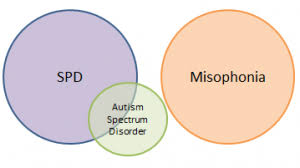 Stephen Geller Katz LCSW-R
Stephen Geller Katz LCSW-R
Misophonia Cognitive Retraining Therapy
 Stephen Geller Katz LCSW-R
Stephen Geller Katz LCSW-RMisophonia Cognitive Retraining Therapy
Misophonia Cognitive Retraining Therapy, as featured on the MTV True Life episode: “I Have Misophonia” premiering Friday, December 16th, 7:00 PM EST. See Clip >
|
|
|
| Moderate to severe anxiety triggered by chewing sounds, including: | ||
|
|
|
You may also be affected by visual stimuli, such as repetitive foot or body movements, fidgeting or movement you observe out of the corners of their eyes. Intense anxiety, rage and avoidant behavior may develop as a result of misophonia.
 * Do you feel your family and friends don’t understand how much you suffer?
* Do you feel your family and friends don’t understand how much you suffer?
* Do you often feel you can just suffer through a social event where there is eating present only to find that you must “escape” before you have a panic attack?
* Do you find that some people are at first understanding and make some efforts not to make the triggering sounds in front of you, but soon forget and constantly have to be reminded, causing you to feel angry, anxious and depressed?
* Are you avoiding social activities that you enjoy because of the misophonia?
* Are you fearful of losing your job and/or is the misophonia effecting your job performance?
You may be a candidate for Misophonia Cognitive Retraining Therapy, or MCRT.
Stephen Geller Katz, LCSW-R, with over 20 years of clinical experience, a New York University graduate, developed Misophonia Cognitive Retraining Therapy and founded Misophonia Cognitive Center™ in response to the growing number of people with Misophonia coming to his private practice from audiologists and ENTs. He discovered that by helping people to retrain and reinterpret the thoughts around their Misophonia, anxiety and depression symptoms began to improve. But even more important so did the Misophonic trigger response.
 As medical science is still trying to understand misophonia and its intricate mechanisms, we’re starting to observe some interesting links between it and other, more commonly reported and “popular” conditions that medicine has been dealing with for a longer period. Autism has been frequently popping up on the radar in this context recently, and it looks like a lot of attention is currently focused on investigating a potential link between the two.
As medical science is still trying to understand misophonia and its intricate mechanisms, we’re starting to observe some interesting links between it and other, more commonly reported and “popular” conditions that medicine has been dealing with for a longer period. Autism has been frequently popping up on the radar in this context recently, and it looks like a lot of attention is currently focused on investigating a potential link between the two.
One of the factors that have prompted this is an apparent increase in the frequency of cases where the two conditions are reported together. It’s indeed not rare for parents dealing with autistic children to describe them as being easily irritated by specific sounds, often to the extent that the situation provokes a physical response. However, it’s worth noting that the two are reported separately in many cases, rather than describing misophonia as just another symptom of autism, which has contributed to the perceived potential link between them.
This has also prompted some to investigate whether misophonia could be a subclass of autism with a milder set of symptoms. While it’s understood that autism is not a “black and white” condition – like most issues in the psychological world – the exact line where it becomes an agitated response to certain factors remains somewhat unclear. Some specialists seem convinced that the two conditions are one and the same and that misophonia is simply more specialized and tightly focused, but that remains nothing more than a hypothesis at this stage.
More research is necessary before any conclusions can be drawn. And due to the limited number of patients reporting misophonia and having the will to actually deal with it, progress has been relatively slow. To physicians, every point of contact counts and matters a lot, and the increased interest and attention towards misophonia is a good thing with regards to the future of our research into it.